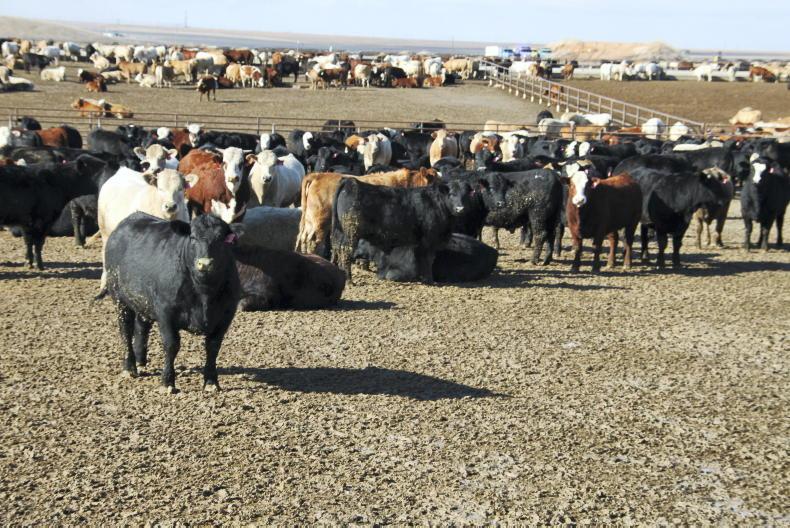It will probably be a number of months before the final text of the proposed free trade agreement between Australia and the UK is published, and only then will we know the extent to which the British government is willing to allow in food produced to standards illegal here.
While it would be expected that the UK will maintain a ban on hormones (excluding an estimated 40% of Australian beef cattle), the use of in-feed antibiotics tends to receive much less attention.
A practice banned in the EU since 2006, many global food exporters including Australia continue to allow their use.
Yet the British government seems intent on throwing open their food market
Given how much farmers here are under pressure to reduce antibiotics as part of a strategy to prevent antimicrobial resistance in humans, it is incredible to think that the same standards will not be expected of food imports.
Yet the British government seems intent on throwing open their food market. Even the Australians were probably surprised at the extent the UK was willing to liberalise on agriculture. By year 10, Australia will be able to import 125,000t of lamb tariff-free, which equates to over 40% of UK lamb production.
Government ministers either don’t care about UK farming or are banking on the fact that Australia and NZ will continue to find Asian markets more attractive
On beef, by year 15, they will be able to import 170,000t, which is around 18% of UK production.
Others will expect the same, and it is rumoured the UK will announce an agreement in principle with New Zealand (NZ) in August. Government ministers either don’t care about UK farming or are banking on the fact that Australia and NZ will continue to find Asian markets more attractive.
Meanwhile, the UK Climate Change Committee (CCC) wants more action from government ministers to encourage people to consume 20% less meat and dairy by 2030.
If the CCC slightly tailored that message to one that encourages consumers to only buy locally produced meat and dairy, which is proven to have one of the lowest carbon footprints in the world, they might actually get farmers onside. But that wouldn’t exactly fit with the current narrative around free trade.
Read more
No ‘silver bullet’ alternative to antibiotics
New Zealand next up for UK trade deal
It will probably be a number of months before the final text of the proposed free trade agreement between Australia and the UK is published, and only then will we know the extent to which the British government is willing to allow in food produced to standards illegal here.
While it would be expected that the UK will maintain a ban on hormones (excluding an estimated 40% of Australian beef cattle), the use of in-feed antibiotics tends to receive much less attention.
A practice banned in the EU since 2006, many global food exporters including Australia continue to allow their use.
Yet the British government seems intent on throwing open their food market
Given how much farmers here are under pressure to reduce antibiotics as part of a strategy to prevent antimicrobial resistance in humans, it is incredible to think that the same standards will not be expected of food imports.
Yet the British government seems intent on throwing open their food market. Even the Australians were probably surprised at the extent the UK was willing to liberalise on agriculture. By year 10, Australia will be able to import 125,000t of lamb tariff-free, which equates to over 40% of UK lamb production.
Government ministers either don’t care about UK farming or are banking on the fact that Australia and NZ will continue to find Asian markets more attractive
On beef, by year 15, they will be able to import 170,000t, which is around 18% of UK production.
Others will expect the same, and it is rumoured the UK will announce an agreement in principle with New Zealand (NZ) in August. Government ministers either don’t care about UK farming or are banking on the fact that Australia and NZ will continue to find Asian markets more attractive.
Meanwhile, the UK Climate Change Committee (CCC) wants more action from government ministers to encourage people to consume 20% less meat and dairy by 2030.
If the CCC slightly tailored that message to one that encourages consumers to only buy locally produced meat and dairy, which is proven to have one of the lowest carbon footprints in the world, they might actually get farmers onside. But that wouldn’t exactly fit with the current narrative around free trade.
Read more
No ‘silver bullet’ alternative to antibiotics
New Zealand next up for UK trade deal






 This is a subscriber-only article
This is a subscriber-only article










SHARING OPTIONS: